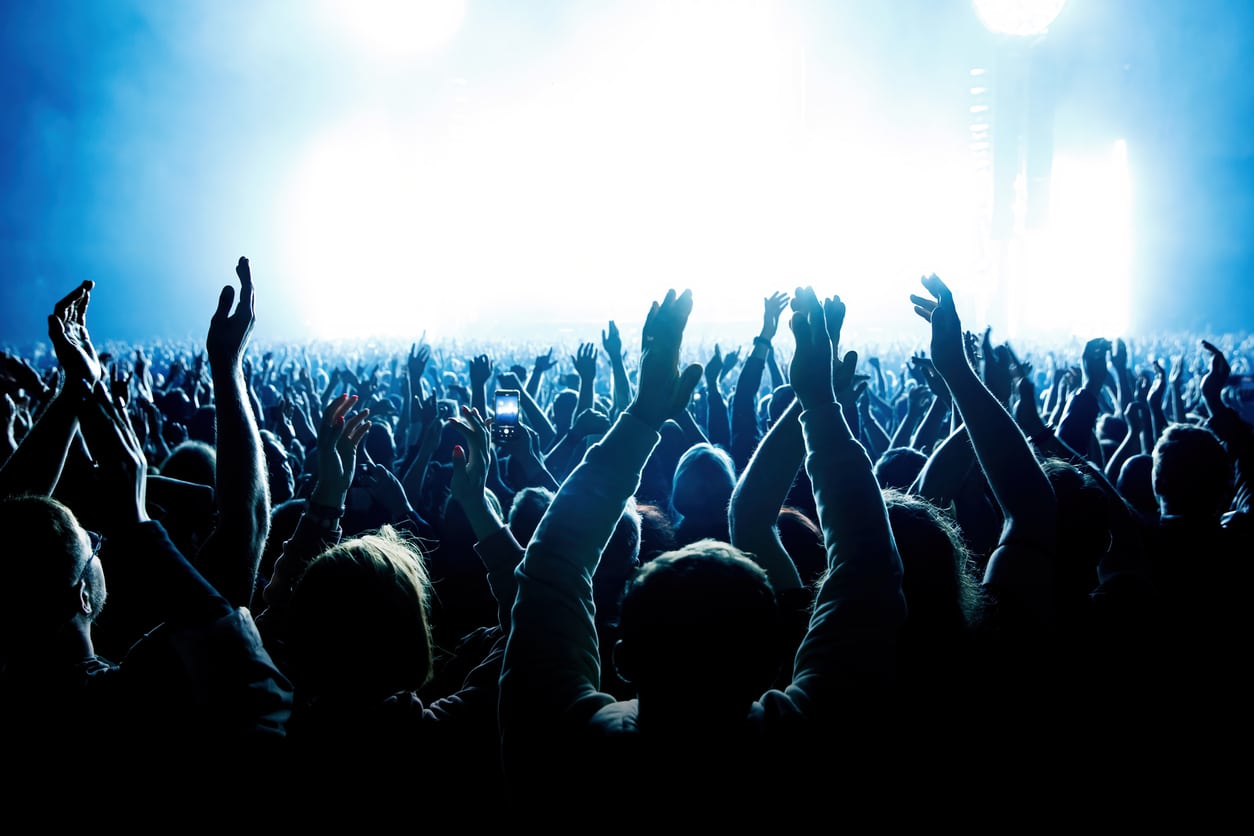Concerts are a fun way to spend a night out with your friends. If you’ve ever noticed that sounds are muffled or have a slight ringing in your ear after a concert, it is likely because you are experiencing hearing damage.
Let’s examine why hearing loss may occur from concerts and what you can do to prevent it.
What Is the Connection Between Concerts and Hearing Loss?

Noise exposure is a well-documented cause of temporary and permanent hearing loss. Information from The Centers for Disease Control tells us that any noise exposure over 70 decibels over an extended period of time can cause damage to your hearing, and noise over 120 decibels can cause immediate damage.
The average range of noise for a popular concert is 85-105 decibels, or well within the range to cause hearing loss. Attending a two to three-hour concert at Pechanga Arena at a volume of 85-105 decibels without taking steps to protect your hearing can result in temporary or permanent hearing loss and tinnitus. Knowing how to protect your hearing can help you enjoy your shows worry-free.
How Can You Protect Your Hearing During Concerts?
You may not be able to ask concert venues to turn the sound down, but there are protective measures you can take to help prevent hearing damage, including but not limited to:
- Wearing hearing protection. Earplugs and earmuffs dull sound and reduce the force with which it enters your ear. If you attend concerts regularly, you may want to consider custom earplugs. Musicians often wear custom earplugs to protect their hearing without diluting the sound.
- Choose a spot away from the speakers. Try choosing a seat a little further from the main speakers or amps to prevent exposure to noise at its highest decibel.
- Step outside for a couple of minutes. Take short breaks away from the concert to give your ears a rest. This will help keep your ears from being overloaded with noise.
Following these tips is essential to enjoying a concert without damaging your ears.
For more tips about protecting your hearing, make an appointment with one of our hearing specialists at Rancho Santa Fe Audiology today.